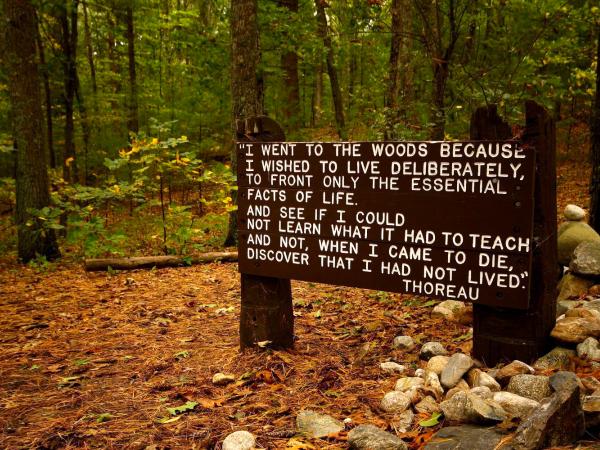In Walking, written near the end of his life and posthumously published in 1862, Henry David Thoreau admits that, despite what many of us may like to think of him, he had, “with regard to Nature”, only “led a sort of border life”. This was true for him even at Walden Pond, the site of his great Transcendental experiment. Here, he spent two years in deep study of this simple body of water outside Concord, Massachusetts (going as far as surveying the water’s bottom with a compass, chain and sounding line, showing his deep commitment to understanding the Nature of it). And while his writings and lectures describe the natural world, and man’s relationship to it, with an extraordinary degree of attention to detail and concreteness of style hardly matched, he admits that his account of his time at Walden inevitably falls short of even his own expectations—as most experiments inevitably do. So, as we spend four weeks in study of Thoreau’s Walden, surveying its literary and philosophical ‘depth’, we will, too, likely fall a bit short of truly understanding what it means to be ‘Transcendental’. Yet, we will try as he did, walking the borderlands of Walden Pond on the outskirts of Concord, a place that, while more of a Transcendental suggestion than a reality, was nevertheless one that afforded him a simple and deliberate life. At the very least, he would remind us of the most basic of Transcendental principles: that “to be awake is to be alive”.
This class is in four parts, meeting Jan 29, Feb 5, 12 and 19 from 6–7:30pm.
Part of the BIG IDEA project The Bottomlessness of a Pond: Transcendentalism, Nature and Spirit.
About Tim Price
